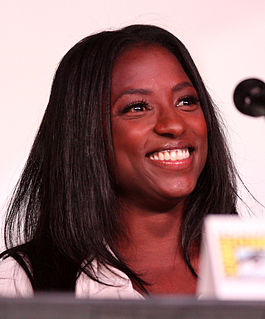A Quote by Cassandra Clare
We were once getting married. And I have loved you all this time- a century and a half. -Jem
Related Quotes
As a single couple, we are no longer able to hang around with married couples 'cause they cannot be in our presence without getting very annoying. It's always like, 'So, when are you guys getting married? Huh? When are you getting married? When are you guys getting married?!' I dunno, you're married - when are you gonna die? You're already married, death will be next. When are you gonna die?
I was thinking how amazing it was that the world contained so many lives. Out in these streets people were embroiled in a thousand different matters, money problems, love problems, school problems. People were falling in love, getting married, going to drug rehab, learning how to ice-skate, getting bifocals, studying for exams, trying on clothes, getting their hair-cut and getting born. And in some houses people were getting old and sick and were dying, leaving others to grieve. It was happening all the time, unnoticed, and it was the thing that really mattered.
Will’s eyes met Tessa’s as she came closer, almost tripping again over the torn hem of her gown. For a moment, they were in perfect understanding. Jem was what they could still look each other straight in the eye about. On the topic of Jem, they were both fierce and unyielding. Tessa saw Will’s hand tighten on Jem’s sleeve. “She’s here,” he said. Jem’s eyes opened slowly. Tessa fought to keep the look of shock from her face. His pupils were blown out, his irises a thin ring of silver around the black. “Ni shou shang le ma, quin ai de?” he whispered.
We got married drunk in Vegas . . . We dated for a year, and we got married at a drive-through chapel in a cab. [We thought] you have to go down to the courthouse and sign papers and stuff, so who knew? We were married, and apparently now that [Rob] is getting married for real, his lawyer dug up something.
Some were getting married; some were getting divorced. People were in different places, but you had enough time on this earth to actually get somewhere, and I think that's the exciting thing about being 36 and in your mid-30s. You've been somewhere, and you're going to go somewhere. It's fun; it's exciting.
































